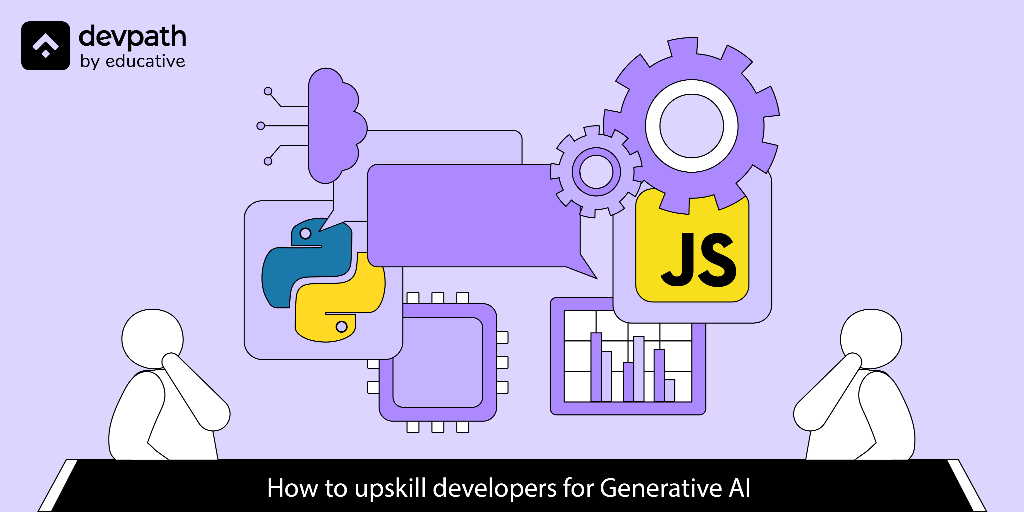DevPath Blog
How to upskill developers for generative AI
Generative AI is revolutionizing the way developer teams operate, enhancing efficiency and creativity by automating mundane tasks and enabling a focus on complex challenges. Originating in the 1960s and evolving with advancements like GANs and large language models, generative AI now plays a crucial role in content creation, software development, and beyond. Despite its potential to boost productivity by up to 30%, it requires careful management to mitigate risks associated with accuracy, bias, and ethical concerns. Through comprehensive training, developers must have a solid understanding of machine learning, data science basics, and ethical AI practices. This blog advocates for a balanced approach to upskilling in generative AI, emphasizing the importance of continuous learning and the responsible deployment of AI technologies in software development.
Aisha Noor
Feb 12 · 2024
How to help your tech team with learning in the flow of work
Learning in the Flow of Work (LIFOW) is an innovative approach aimed at integrating skill development seamlessly into daily tasks, thus enhancing productivity without disrupting the workday. This method, advocated by Josh Bersin in 2018, focuses on making learning a natural, continuous part of work through accessible, context-specific content. It shifts away from traditional, disruptive training methods by emphasizing microlearning, mobile-friendly content, and practical, job-related learning. Examples from companies like Uber and PedidosYa showcase significant improvements in performance metrics by embedding learning directly into work platforms. DevPath’s corporate learning solutions exemplify how tailored, on-the-go learning resources can support career growth, foster innovation, and align employee development with business goals.
Aisha Noor
Feb 6 · 2024
Project management: Agile vs. Waterfall
The Waterfall methodology is a structured, sequential approach to project management, ideal for projects with clear, unchanging requirements. It involves distinct phases like requirements gathering, design, development, testing, and deployment, but is inflexible to changes once the project starts. On the other hand, Agile is a flexible, iterative method, perfect for complex projects with evolving needs. It focuses on continuous collaboration, adaptable planning, and incremental delivery. The choice between Waterfall and Agile depends on project specifics, with Waterfall suiting stable, well-defined projects, and Agile favoring dynamic, unpredictable ones.
Kamran Lodhi
Dec 14 · 2023
